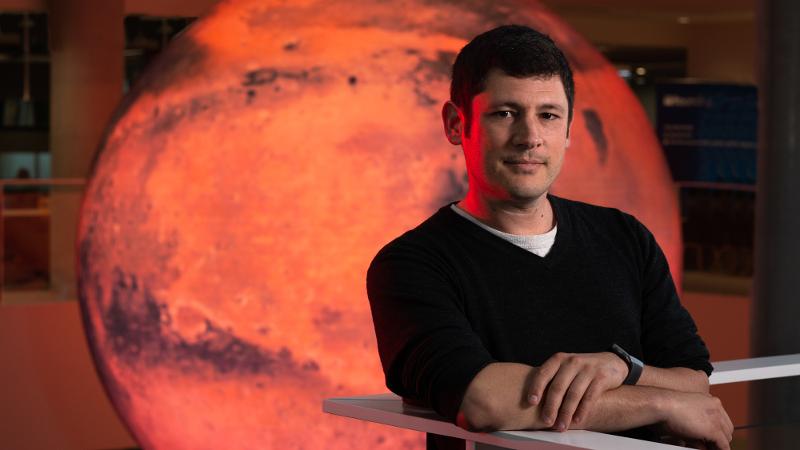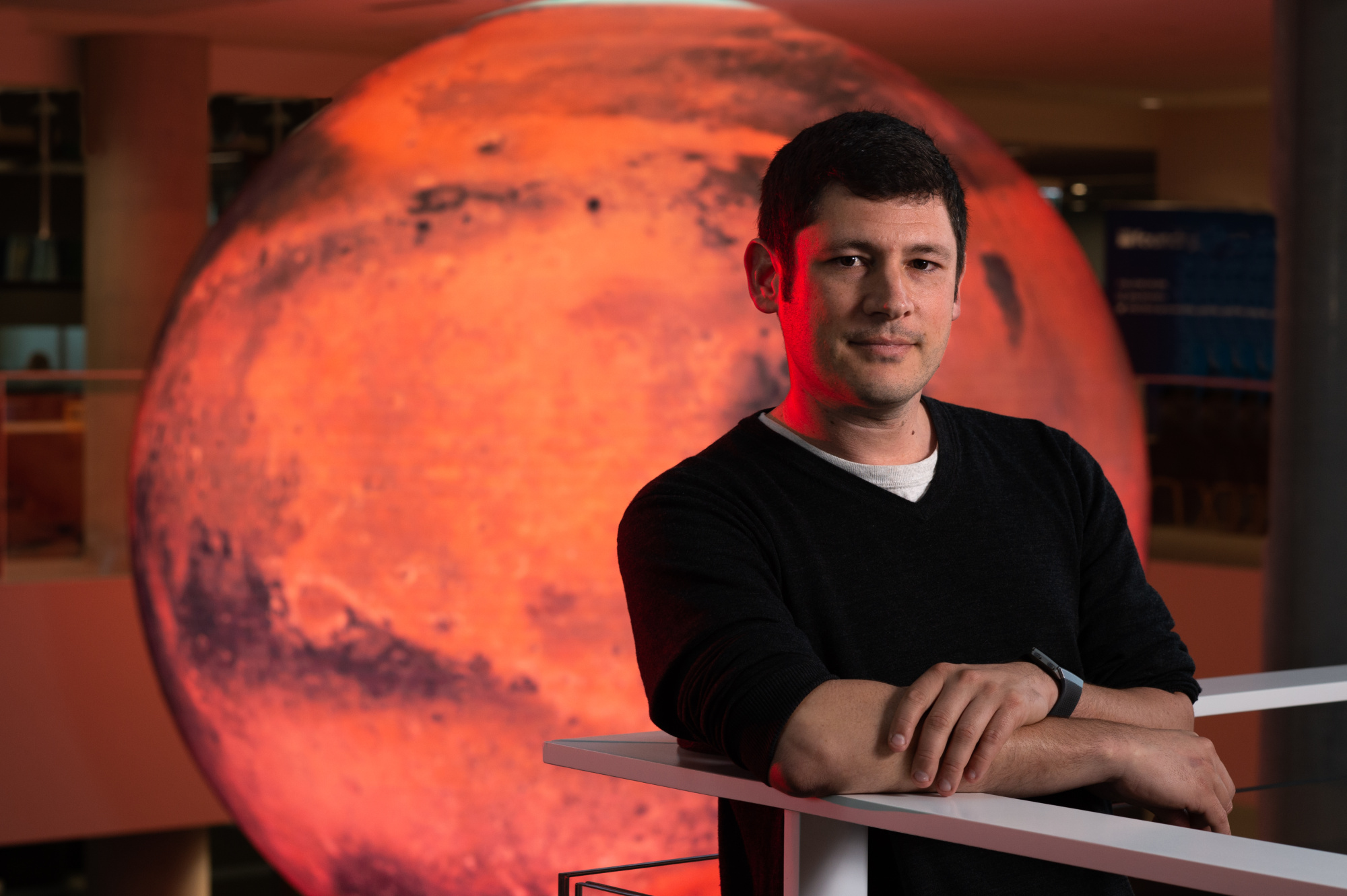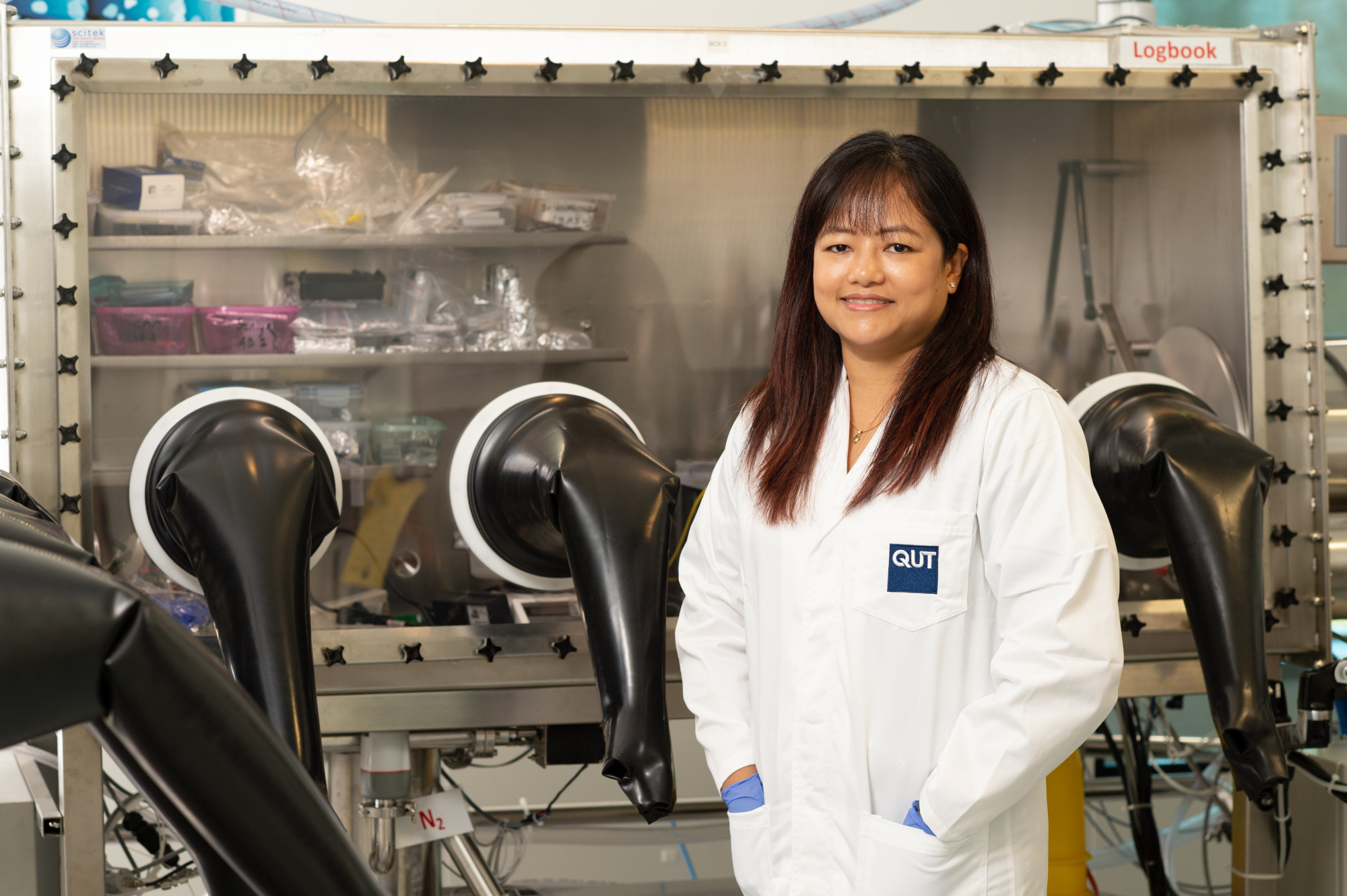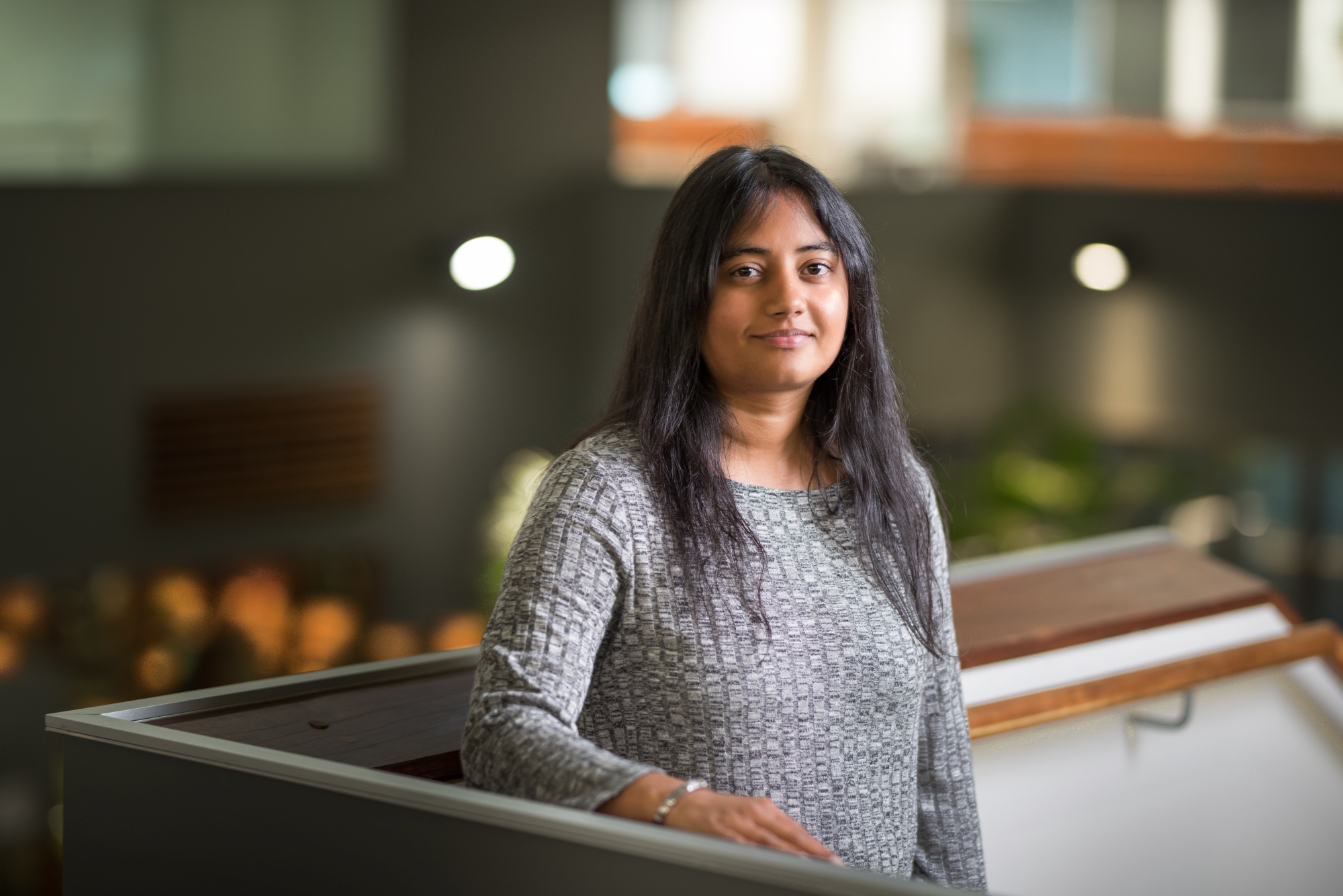QUT space scientist is 2021 Queensland Tall Poppy

Dr David Flannery has been announced as 2021 Queensland Tall Poppy for his work exploring life on Mars.
Dr Flannery was awarded for his work in deep space exploration and the search for life on other planets as Long Term Planner on the NASA Perseverance Rover Mission.
The annual Queensland Young Tall Poppy Awards, hosted by the Australian Institute of Policy and Science (AIPS) in partnership with the Office of the Queensland Chief Scientist, recognise and celebrate individuals who demonstrate scientific excellence and passion for science communication.

Dr David Flannery is looking for life on other planets as a Long Term Planner in charge of daily operations for the NASA’s Perseverance Rover Mission.
A former NASA scientist now based at QUT’s School of Earth and Atmospheric Sciences, he is also a Co-Investigator of the Planetary Instrument for X-ray Lithochemistry (PIXL), a rock chemistry instrument aboard the Perseverance Rover currently surveying Mars.
“PIXL can map features of Mars rocks smaller than a human hair, so we can look for evidence of habitable conditions and microbial fossils, which are signs of life,” Dr Flannery said.
“We have recently landed our rover in an ancient river and lake system, which could preserve evidence for life on Mars."
NASA also commissioned Dr Flannery to develop a cloud-based data analysis and operations software that uses novel visualisation and AI technologies to identify certain features within the Mars data generated by Perseverance.
“Every day in the United States, hundreds of scientists and engineers have only a short period of time to review data returned from the rover before they need to uplink the rover’s next day of operations," Dr Flannery said.
“Our Australian team can download mission data through the Deep Space Network and analyse it for several hours before the US team wakes up in the morning.
“The QUT software is now used by the mission’s scientists all over the world and allows us to efficiently collaborate across time zones and geographic areas.”
Dr Flannery had studied ancient rocks in the Pilbara region of Western Australia as part of his PhD, looking for evidence of microbial organisms that lived billions of years before plants and animals.
Now, as part of the mission, he visits the region with his own PhD students and scientists from the NASA Jet Propulsion Lab (JPL) to study analogues - rocks of similar age that have similar microbial biosignatures to what they expect to find on Mars.
“The rocks that we're now targeting with these rover missions are quite similar to our own ancient rocks on Earth. Investigating these more closely helps us better understand what we're looking at on Mars," Dr Flannery said.
The Perseverance Rover launched almost a year ago and landed in February this year. It has been there for about 140 sols (Mars days) and will continue its mission for at least one Martian year, or about 687 Earth days.
Other QUT scientists recognised as finalists in the awards were:
- Dr Soniya Yambem was awarded for her work on organic electronic devices that could lead to future prosthetics capable of providing sensory feedback.
- Associate Professor Divya Mehta was awarded for her work to identify lifestyle factors that alter stress-responsive gene activity and could impact our mental health and well-being.

Dr Soniya Yambem’s research could lead to future prosthetics like Luke Skywalker’s hand in Star Wars—capable of providing sensory feedback.
She leads research to develop materials and device designs for organic electronic devices that can act as translators between electronic and biological systems.
“A prosthetic hand that functions like a real hand would only be possible with effective communication between the brain and electronic components,” Dr Yambem said.
“The success of these devices could lead to seamless integration of electronics with biological systems and have enormous impact on developing smart prosthetics, human bionics and biosensors.”
Organic electronic devices are based on organic semiconductors, which are flexible, less toxic, and printable.
The devices can also be designed to operate at voltages that would not cause damage in the human body.
Dr Yambem is a researcher with the QUT Centre for Materials Science and QUT Centre for Biomedical Technologies. Since 2015 she has generated around $7.5 million in government and industry research funding.
While she has developed devices for display technologies, renewable energy technologies and sensors, Dr Yambem said potential applications of her research could also include biocompatible brain signal monitors, or implantable and targeted drug delivery devices.
“I’m a physicist and focus on device design but I want to collaborate with neuroscientists and other experts to apply these bioelectronics to support human health.”

Associate Professor Divya Mehta is also exploring communication within the body to better understand how stress-responsive genes contribute to our mental health and well-being.
She focuses on the ‘epigenetics’ of mental health – how changes in our environment can alter gene activity – by analysing big data to measure chemical DNA changes in response to lifestyle factors.
“About 45 per cent of Australians experience a mental health disorder during their life, and the COVID-19 pandemic has increased rates of depression, anxiety and suicide worldwide,” Associate Professor Mehta said.
“Stress affects everyone, but we all respond differently. I aim to identify key genes involved in stress responses that impact our physical and psychological health.
“By measuring chemical DNA changes in response to positive and negative lifestyle factors we can also determine which factors ‘drive’ stress-responsive genes.”
Associate Professor Mehta runs the Stress Genomics group in the School of Biomedical Sciences and is Program Co-lead, Genetic Epidemiology and Statistical Analysis, QUT Centre for Genomics and Personalised Health.
She has received $3.7 million in research funding, including a $1.2 million 2021 NHMRC Ideas grant to lead a world-first study investigating biopsychosocial risk and protective factors driving stress response in Australian emergency responders.
“My research suggests that positive lifestyle factors can reduce and even reverse some of the negative effects of stress on our genes,” Associate Professor Mehta said.
“For example, paramedic students with higher levels of social support had lower levels of stress-related gene activity and reduced rates of mental health symptoms when exposed to stress.”
This year, Queensland Chief Scientist, Professor Hugh Possingham, announced the Queensland Tall Poppy Awards recipients on Wednesday 21 July at QUT’s Science and Engineering Centre.
Media contacts
Novella Moncrieff, 07 3138 1150 or novella.moncrieff@qut.edu.au
After hours: Rose Trapnell, 0407 585 901 or media@qut.edu.au

